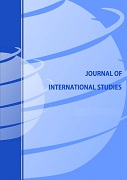LOGISTIC REGRESSION IN THE ANALYSIS OF UNEXPECTED HOUSEHOLD EXPENSES: CROSS-COUNTRY EVIDENCE
LOGISTIC REGRESSION IN THE ANALYSIS OF UNEXPECTED HOUSEHOLD EXPENSES: CROSS-COUNTRY EVIDENCE
Author(s): Patrycja Kowalczyk-Rólczyńska, Tomasz RólczyńskiSubject(s): Micro-Economics, Methodology and research technology, Family and social welfare, Socio-Economic Research
Published by: Fundacja Centrum Badań Socjologicznych
Keywords: economic security; household; unexpected expenses; logistic regression;
Summary/Abstract: Changes unfolding in the households’ structure coupled with the shifting role of the family have been affecting household financial decision-making. Among numerous financial decisions made by households (including consumption decisions, loan decisions, saving decisions, investment decisions and those on risk management), many are related to financial resources spending. In a situation of unexpected expenses, financial problems may arise ultimately undermining household’s financial security. The paper pursues two objectives. The first one is to identify the factors determining households’ capacity to face sudden unexpected expenses. The second objective is to evaluate how the selected factors affect this capacity. To achieve these aims the Eurostat data were used . Given the fact that the dependent variable is a dichotomous one, a logistic regression model has been applied in this study. The findings served as the basis for identification of the factors that determine the ability of households to cope with unexpected expenditures. Only some of the factors proved statistically significant for all the Central and Eastern European countries under study.
Journal: Journal of International Studies
- Issue Year: 13/2020
- Issue No: 3
- Page Range: 216-230
- Page Count: 15
- Language: English

